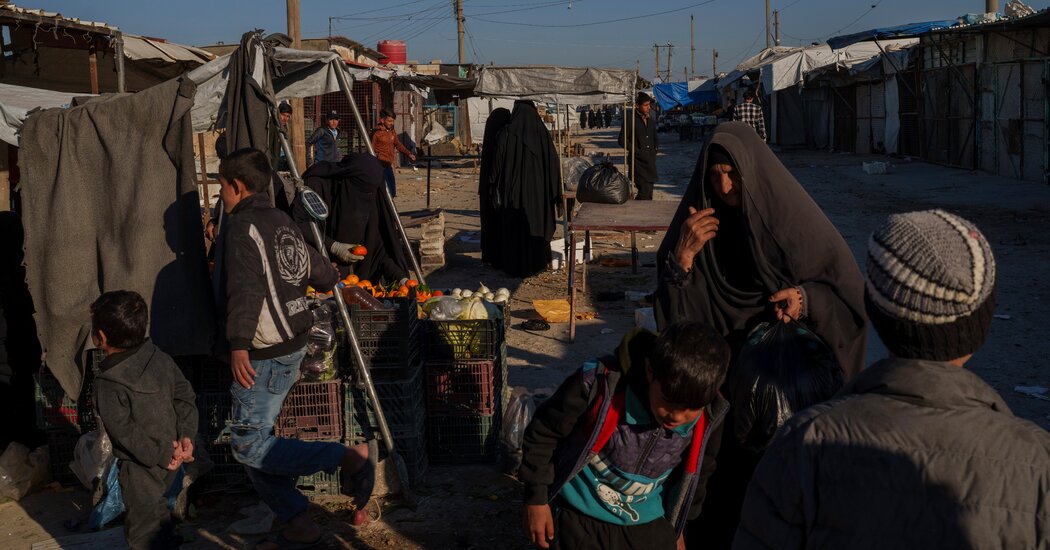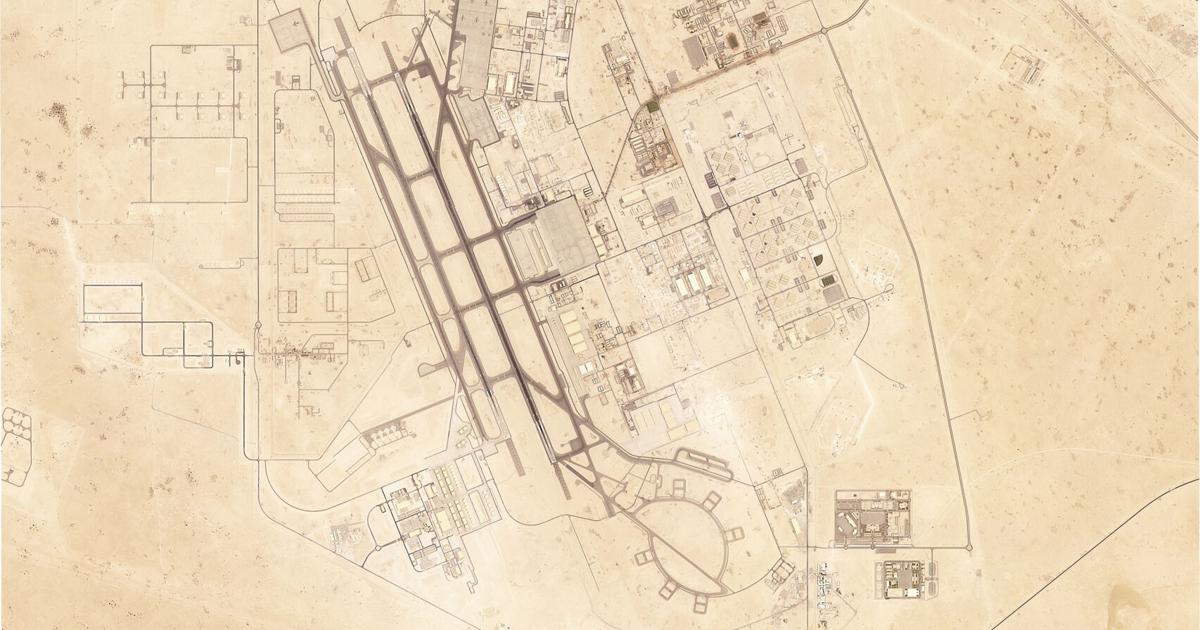President Trump’s funding freeze has thrown into confusion the future of a Syrian desert camp holding thousands of Islamic State members and their families, the camp’s director and people familiar with it said, describing it as a potential security threat in the region.
The camp, Al Hol, which houses some 39,000 people, has been whipsawed by a halt to U.S.-funded programs then short reprieves, and is still struggling to understand its status. Even as some programs critical to securing the camp received temporary extensions, another organization essential to managing the camp said it might have to halt its work there as soon as Monday.
The confusion stems from Mr. Trump’s executive order last month that froze foreign aid and Secretary of State Marco Rubio’s announcement on Monday that he was folding the United States Agency for International Development into the State Department. Elon Musk, who runs a task force in the administration, said the aim was to shut down U.S.A.I.D., which supports operations in the camp.
Al Hol, as well as a smaller camp, Roj, is seen as central to easing fears of a comeback by the Islamic State, or ISIS, at a time when the ouster of Bashar al-Assad from the presidency in Syria has thrown the country into flux and added to instability in the region.
A U.S. contractor, Proximity International, nearly halted operations after Mr. Rubio issued a stop-work order last week for all foreign aid programs. Proximity International runs a program that trains and equips local security forces in northeastern Syria and at Al Hol.
Blumont, a humanitarian aid group that has been contracted to support the camps since 2016, has assessed that it might have to stop working as soon as Monday, according to an official at the organization. It employs hundreds of Syrian workers to provide food, water, sanitation services, fuel and tents at the camps, and also employs security guards at camp warehouses to protect supplies.
A Virginia-based nonprofit, Blumont obtained a 15-day waiver from the freeze. Proximity International was granted a one-month waiver last Friday, hours before its contract was to expire, according to two people familiar with the program who asked not to be identified because of the sensitivity of the issue, and to Jihan Hanan, the director of Al Hol and an official with the regional Kurdish authorities.
But it is unclear what will happen when their waivers expired. Both organizations are trying to clarify with U.S. officials what comes next.
The Trump administration has argued that the funding freeze, set to last 90 days, is needed to examine whether U.S. funds are being wasted. “Every dollar we spend, every program we fund and every policy we pursue must be justified with the answer to three simple questions,” Mr. Rubio said in a statement last month. “Does it make America safer? Does it make America stronger? Does it make America more prosperous?”
People involved in running the camps contend that the work does make America safer, detaining ISIS members as well as housing others displaced by war. Al Hol is seen as a key target for ISIS recruitment and operations, and maintaining security there is viewed as important to keeping the jihadist group at bay.
Blumont’s exemption is set to expire on Monday. It has not been told whether a waiver will be continued, and it has not been paid since the Trump administration began its review of aid programs. A Blumont official said on Thursday that the group had run out of money and could no longer afford to work at the camps if the State Department or U.S.A.I.D. did not reimburse it for the services it has already provided.
The last payment Blumont received from either agency was on Jan. 21 — the day the Trump administration ordered the funding freeze, according to the official, who was not authorized to be identified by name and spoke on condition of anonymity. The official said Blumont had furloughed half of its U.S.-based staff to try to reserve funding for work in the field.
Ms. Hanan, Al Hol’s director, said that while she was relieved the Trump administration appeared to understand the significance of maintaining the security program at the camp, the chaos surrounding the status of other programs meant that long-term security concerns remained.
About 22,000 of the camp’s residents are under 18, Ms. Hanan said, and have grown up in families that were once loyal to ISIS, and perhaps still are. The endangered programs are critical to ensuring they do not embrace extremism, she added.
“Stopping aid is going to impact children whose background makes them a threat to the world, their communities and their own families,” she said in an interview. “We want to rehabilitate these children by improving their living conditions, and, instead, we were shocked to find out that it’s going in the opposite direction.”
Schools are already shut down in the camp, she said, and some services for women also appear to be at risk. “A lot of organizations are telling us: At any moment, we may get an order to stop,” she said.
American connections to Al Hol, and to northeastern Syria, date to the U.S.-led coalition formed in 2014 to fight ISIS, which had seized control of large parts of Syria and Iraq. The coalition ultimately defeated the group.
U.S. troops maintain a presence in northeastern Syria, supporting a local ally, the Kurdish-led Syrian Democratic Forces, to guard against an ISIS comeback. The S.D.F. controls most of northeastern Syria and a constellation of prisons and refugee camps there holding ISIS fighters and their families.
The confusion around Al Hol comes as the Department of Defense is drawing up plans to withdraw all U.S. troops from Syria — though it is unclear whether such plans would be a hypothetical exercise or something more serious.
Any signs of a pulling back by the United States from its commitment to securing that territory are sure to unnerve the S.D.F., which has come under increasing attack from groups backed by neighboring Turkey.
In an interview, the leader of the S.D.F. warned last year that his forces would abandon their roles securing ISIS prisons should they need to divert forces to fight Turkey.


